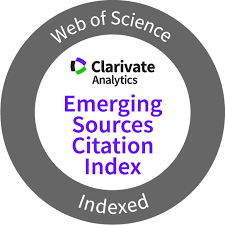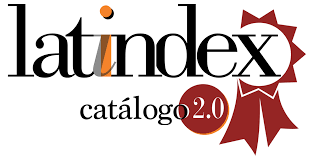Eventos desportivos e a noticiabilidade. O caso da Lisboa Classic Regatta / Sporting events and newsworthiness. The example of the Lisboa Classic Regatta
DOI:
https://doi.org/10.5783/revrrpp.v7i13.447Keywords:
Relações Públicas, Eventos Desportivos, noticiabilidade, clippingAbstract
Actualmente, várias são as acções empreendidas pelos países e cidades para atrair visitantes e turistas e dinamizar a sua economia. Entre elas, os eventos desportivos assumem-se como dinamizadores do turismo, mas também como motivadores da atenção dos media. Neste artigo, evidenciamos como um planeamento estratégico de um evento de desporto minoritário – o remo – contribuiu para a notoriedade da cidade de Lisboa e para a sua noticiabilidade. Neste sentido, pretendemos evidenciar a importância do planeamento e da avaliação no desenvolvimento de acções de relações públicas, em particular os eventos.
Abstract
At present, there are several actions taken by countries and cities to attract visitors and tourists and to boost their economy. Among them, sporting events are seen as driving tourism, but also as motivators of media attention. This article sought to understand how strategically planned sport events can contribute to the promotion of rowing sport, making an agenda and generating newsworthiness.
Sporting events and newsworthiness. The example of the Lisboa Classic Regatta
Downloads
References
Allen, J. (2009). Event Planning (2 ed.). Ontario: John Wiley & Sons Canada, Ltd.
Boorstin, D. J. (1961/1987). The image. A guide to pseudo-events in America (25th anniversary ed.). New York: Vintage Books.
Boyle, P., & Haggerty, K. (2009). Spectacular security: Mega-events and the security complex. Political Sociology, 3, 257-274
Bryant, M. (11 de Abril de 2010). Record crowd for Easter Boat Race. Obtido em 8 de Julho de 2016, de London Evening Standard: http://www.standard.co.uk/news/record-crowd-for-easter-boat-race-6455343.html
Buhalis D. (2000). Marketing the competitive destination of the future. Tourism Management, 21, 97-116.
Collins, A. & Flynn, A. (2008). Measuring the Environmental Sustainability of a Major Sporting Event: A Case Study of the FA Cup Final. Tourism Economics, 14(4), 751-768. doi: 10.5367/000000008786440120
Cornelissen, J. (2011). Corporate Communication: A Guide to Theory and Practice (3 ed.). London: SAGE Publications.
Correia, A. H. (1999). Estratégia das federações desportivas - Estudo das principais federações portuguesas no ciclo olímpico de 1993 a 1996. Tese de Doutoramento em Ciências do Desporto. Lisboa: UTL/FMH.
Crompton, J. (1995). Economic impact analysis of sports facilities and events: Eleven sources of misapplication. Journal of Sport Management, 9 (1), 14-35. , Google Scholar
Crompton, J., & Lee, S. (2000). The economic impact of 30 sports tournaments, festivals, and spectator events in seven U.S. cities. Journal of Park and Recreation Administration, 18, 107-126.
Daniels, M. J. (2016). Beyond Input-Output Analysis: Using Occupation-Based Modeling to Estimate Wages Generated by a Sport Tourism Event. Journal of Travel Research, 43(1), 75 – 82. doi:10.1177/0047287504265515
Federação Portuguesa de Remo. (2016). Relatório e Contas - 2015. Lisboa: Federação Portuguesa de Remo.
Floridis, G. ( 2004). Security for the 2004 Athens Olympic Games. Mediterranean Quarterly, 15(2), 1-5
Galtung, J., & Ruge, M. H. (1965). The Structure of Foreign News. The Journal of Peace Research, 2 (1), 64-91.
Gama, A. P. (2011). Auditorias de Marketing. Lisboa: Edições IADE.
Giulianotti, R. & Klauser, F. (2009). Security Governance and Sport Mega-events: Toward an Interdisciplinary Research Agenda. Journal of Sport and Social Issues, 34(1), 49-61. doi: 10.1177/0193723509354042
Giulianotti, R., & Klauser, F (2012). Sport mega-events and ‘terrorism’: A critical analysis. International Review for the Sociology of Sport, 47(3), 307–323. doi: 10.1177/1012690211433454
Hoeber, L. & Kerwin, S. (2013) Exploring the experiences of female sport fans: A collaborative self-ethnography. Sport Management Review, 16(3), 326-336.
Ingle, S. (12 de Abril de 2015). Boat race viewing figures delight BBC as 4.8m watch women’s event. Obtido em 9 de Agosto de 2016, de The Guardian: https://www.theguardian.com/sport/2015/apr/12/boat-race-viewing-figures
Instituto Português do Desporto e Juventude. (22 de Setembro de 2016). Instituto Português do Desporto e Juventude. Em: http://www.idesporto.pt/conteudo.aspx?id=103
Jones, C. (2001). Mega-events and host-region impacts: Determining the true worth of the 1999 Rugby World Cup. International Journal of Tourism Research, 1, 241-251.
Kaplanidou, K. (2007). Affective event and destination image: Their influence on Olympic travellers’ behavioural intentions. Event Management, 10, 159-173.
Kaplanidou, K. (2010). Active sport tourists: Sport event image considerations. Tourism Analysis, 15, 381-386.
King, C., Chen, N., & Funk, D. C. (2012). Exploring Destination Image Decay. Journal of Hospitality & Tourism Research, 39(1), 3-31. doi: 10.1177/1096348012461547
Lagaert, S. & Roose, H. (2016). The gender gap in sport event attendance in Europe: The impact of macro-level gender equality. International Review for the Sociology of Sport, 1-17. doi:10.1177/1012690216671019
Macnamara, J. (2005). Advertising Value. Obtido em 14 de Agosto de 2016, de Public Relations Institute of Australia: http://www.pria.com.au/sitebuilder/resources/knowledge/files/1870/advertisingvalues.pdf
Melo, A. H., Correia, A. B., Lobato, A., North, C., Almada, J., Leitão, M., et al. (2005). Associação Naval de Lisboa 1856-2006. Lisboa: Associação Naval de Lisboa.
Mohan, L- J. (2010). Effect of Destination Image on Attendance at Team Sporting Events. Tourism and Hospitality Research, 10(3), 157 – 170. doi: 10.1057/thr.2010.1
Mondello, M., & Rishe, P. (2004). Comparative economic impact analyses: Differences across cities, events, and demographics. Economic Development Quarterly, 18(4), 331-342.
Nunes, P. A. (2010). Desporto, Turismo e Ambiente - O turismo de natureza como polo de atração turística complementar ao produto sol & mar na sub-região do litoral alentejano. Tese de Doutoramento em Ciências do Desporto. Lisboa: UTL/FMH.
Otero Alvarado, M. T. (2005). Los acontecimientos especiales como acciones de relaciones públicas: el ceremonial y el protocolo. Coord. A. Castillo Esparcia, Comunicación organizacional: teorías y estudios (pp. 123-163). Málaga: Editorial Clave Aynadamar.
Otero Alvarado, M. T. (2006). Relaciones públicas y gestión de públicos en eventos: los principios rectores del ceremonial y el protocolo. Anàlisi: Quaderns de Comunicació i Cultura, 34, 255-269.
Pedersen, P. M. (2012). Reflections on Communication and Sport: On Strategic Communication and Management. Communication & Sport , 1 (55), 55-67.
Pereira, A. (24 de Julho de 2014). Turismo de Portugal retira patrocínio de um milhão ao Rally de Portugal. Jornal de Negócios.
Real, M. (2003). Reflections on Communication and Sport: On Spectacle and Mega-Events. Communication & Sport, 1 (30), 30-42.
Roche, M. (2000). Mega-events and modernity: Olympics and expos in the growth of global culture. London: Routledge.
Rowe, D. (2012). Reflections on Communication and Sport: On Nation and Globalization. Communication & Sport, 1 (18), 18-29.
Sá, C., & Sá, D. (2008). Sports Marketing- As Novas Regras do Jogo. Porto: Edições IPAM.
Sallent, O., Palau, R., & Guia, A. (2011). Exploring the Legacy of Sport Events on Sport Tourism Networks. European Sport Management Quarterly , 11 (4), 397-421.
Santo, P. E. (2010). Introdução à Metodologia das Ciências Sociais - Génese, Fundamentos e Problemas. Lisboa: Edições Sílabo.
Sebastião, S. P. (2009). Comunicação Estratégica - As Relações Públicas. Lisboa: ISCSP.
Sebastião, S. P., & Lemos, A. I. (2016). A voz da Comunidade na Preparação de Megaevento: Rio 2016 / The voice of the Community in the Mega Event Preparation: Rio 2016. Cuadernos.info, 39, pp. 209-224. doi: 10.7764/cdi.39.679
Sebastião, S. P., Lemos, A. I., & Soares, I. (2016). The coverage of opposing events: Brazilian's sporting mega-events preparation and the host community civil protests. Edited by B. Mitu & S. Poulakidakos, Media Events. A Critical Contemporary Approach (pp. 71-91). London: Palgrave Macmillan. doi: 10.1057/9781137574282_5
Siegfried, J., & Zimbalist, A. (2006). The economic impact of sports facilities, teams and mega-events. Australian Economic Review, 39, 420-427
Sousa, J. F., & Umbelino, J. (Novembro de 1998). Os portugueses e o mar: roteiro de imagens e usos. Revista da Faculdade de Ciências Sociais e Humanas , p. 327.
Sousa, J. F., Fernandes, A., & Carpinteiro, A. (2009). O desenvolvimento das Actividades Náuticas de Recreio como Estratégia de Valorização Territorial: um olhar sobre o Estuário do Tejo. 15.º Congresso da APDR - Redes e Desenvolvimento Regional (pp. 2475-2494). Cidade da Praia - Cabo Verde: APDR.
Standeven, J. (1998). Sport tourism: Joint marketing - A starting point for beneficial synergies. Journal of Vacation Marketing, 4 (39), 39-51.
Stokes, R. (2006). Network-based strategy making for events tourism. European Journal of Marketing, 40 (5/6), 682-695.
Teixeira, M. (2009). Portugal, Poder Local e Desporto. Lisboa, Lisboa: Grifos.
THR - Asesores en Turismo Hotelería y Recreación, S.A. (2006). 10 produtos estratégicos para o desenvolvimento do turismo em Portugal - Turismo Náutico. Lisboa: Turismo de Portugal, I.P.
Traquina, N. (2005). Teorias do Jornalismo (2ª ed., Vol. 1). Florianópolis: Editora Insular.
Turismo de Portugal, I.P. (2007). Plano Estratégico Nacional do Turismo - Para o Desenvolvimento do Turismo em Portugal. Lisboa: Turismo de Portugal, I.P.
Turismo de Portugal, I.P. (2013). Plano Estratégico Nacional do Turismo - Revisão e Objetivos 2013-2015. Lisboa: Turismo de Portugal, I.P.
Turismo de Portugal, I.P. (2015). Turismo 2020 - Cinco Princípios para uma Ambição. Lisboa: Turismo de Portugal, I.P.
UNWTO (2015). UNWTO Annual Report 2015. Disponível em: http://www2.unwto.org/annual-reports
Wang, X. (2014). Using attitude functions, self-efficacy, and norms to predict attitudes and intentions to use mobile devices to access social media during sporting event attendance. Mobile Media & Communication, 3(1), 75-90. doi: 10.1177/2050157914548932
Whannel, G. (2013). Reflections on Communication and Sport: On Mediatization and Cultural Analysis. Communication & Sport , 1 (7), 7-17.
Wolf, M. (2009). Teorias da Comunicação (10ª ed.). Lisboa: Editorial Presença.
Yeoman, I., Robertson, M., Ali-Knight, J., Drummond, S., & McMahon-Beattie, U. (2004). Festival and Events Management. An International Arts and Culture Perspective. Oxford: Elsevier Butterworth-Heinemann.
Downloads
Published
How to Cite
Issue
Section
License
Authors publishing in this journal agree to the following terms:
a. Authors retain copyright and grant the journal the right to be the first publication of the work as licensed under a Creative Commons Attribution License that allows others to share the work with an acknowledgement of authorship of the work and initial publication in this journal.
b. Authors may separately enter into additional arrangements for non-exclusive distribution of the version of the work published in the journal (e.g., placing it in an institutional repository or publishing it in a book), with an acknowledgement of initial publication in this journal.
c. Authors are allowed and encouraged to disseminate their work electronically (e.g. in institutional repositories or on their own website) before and during the submission process, as it can lead to productive exchanges, as well as earlier and higher citation of published work (see The Effect of Open Access).




